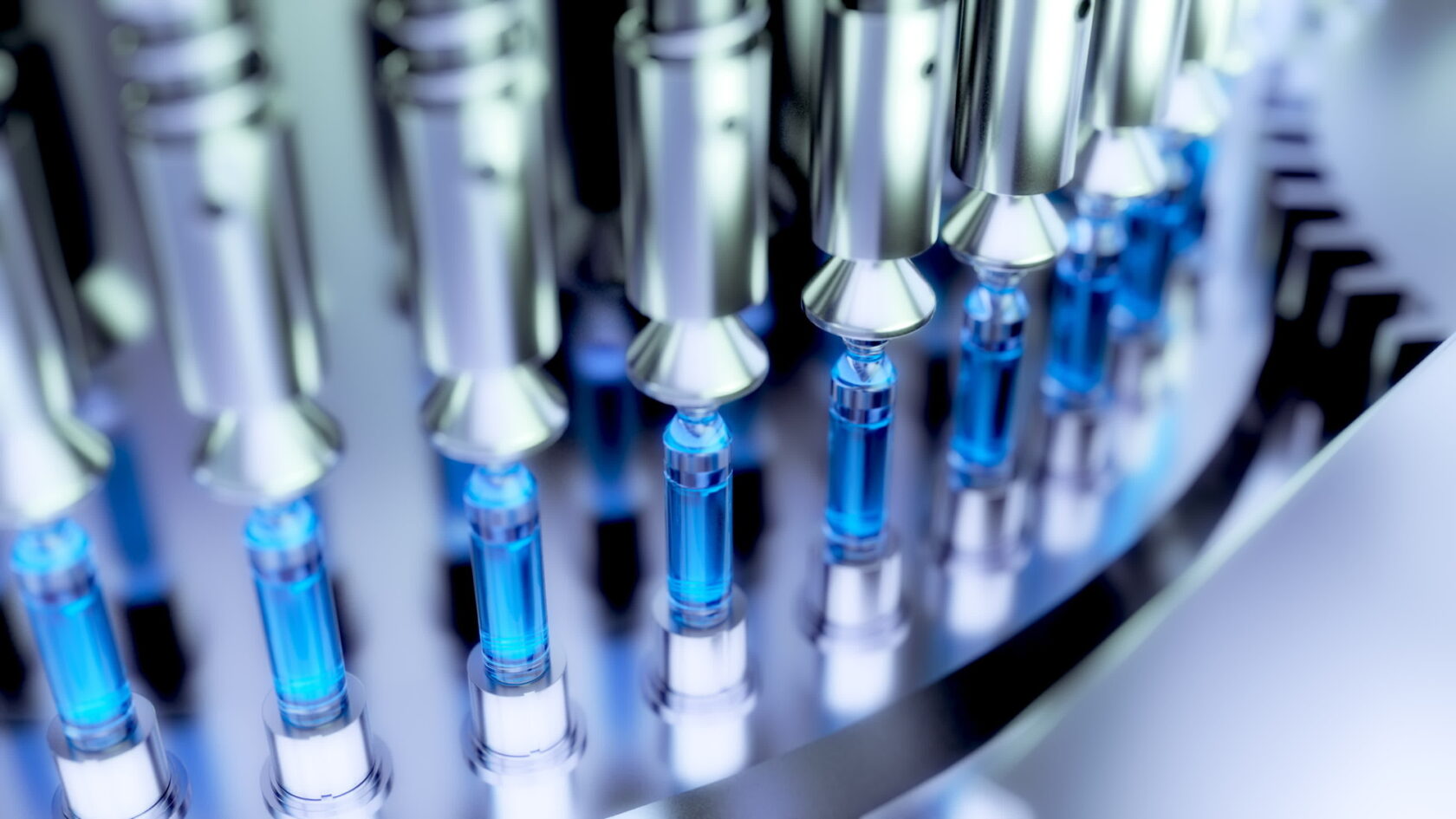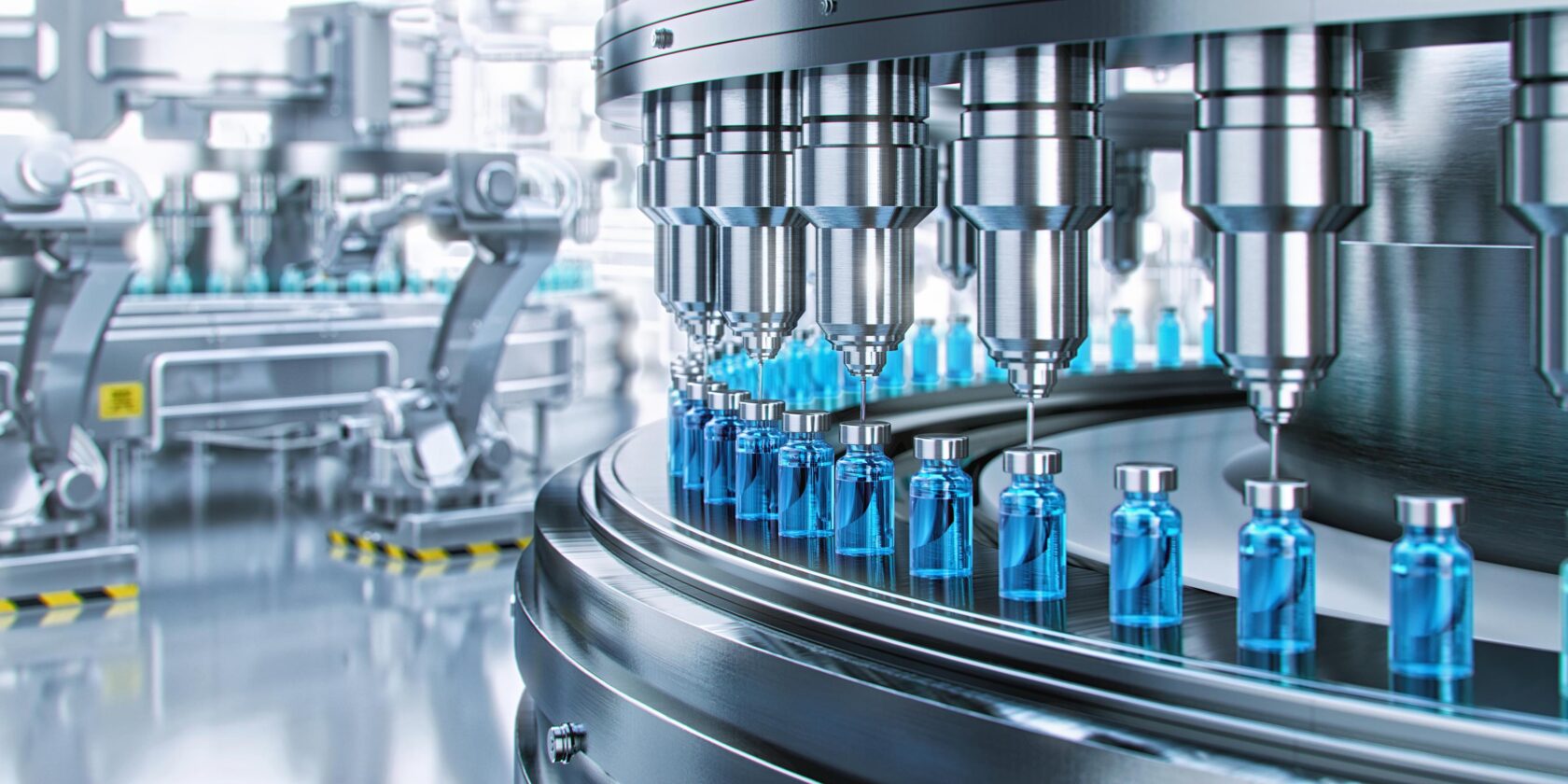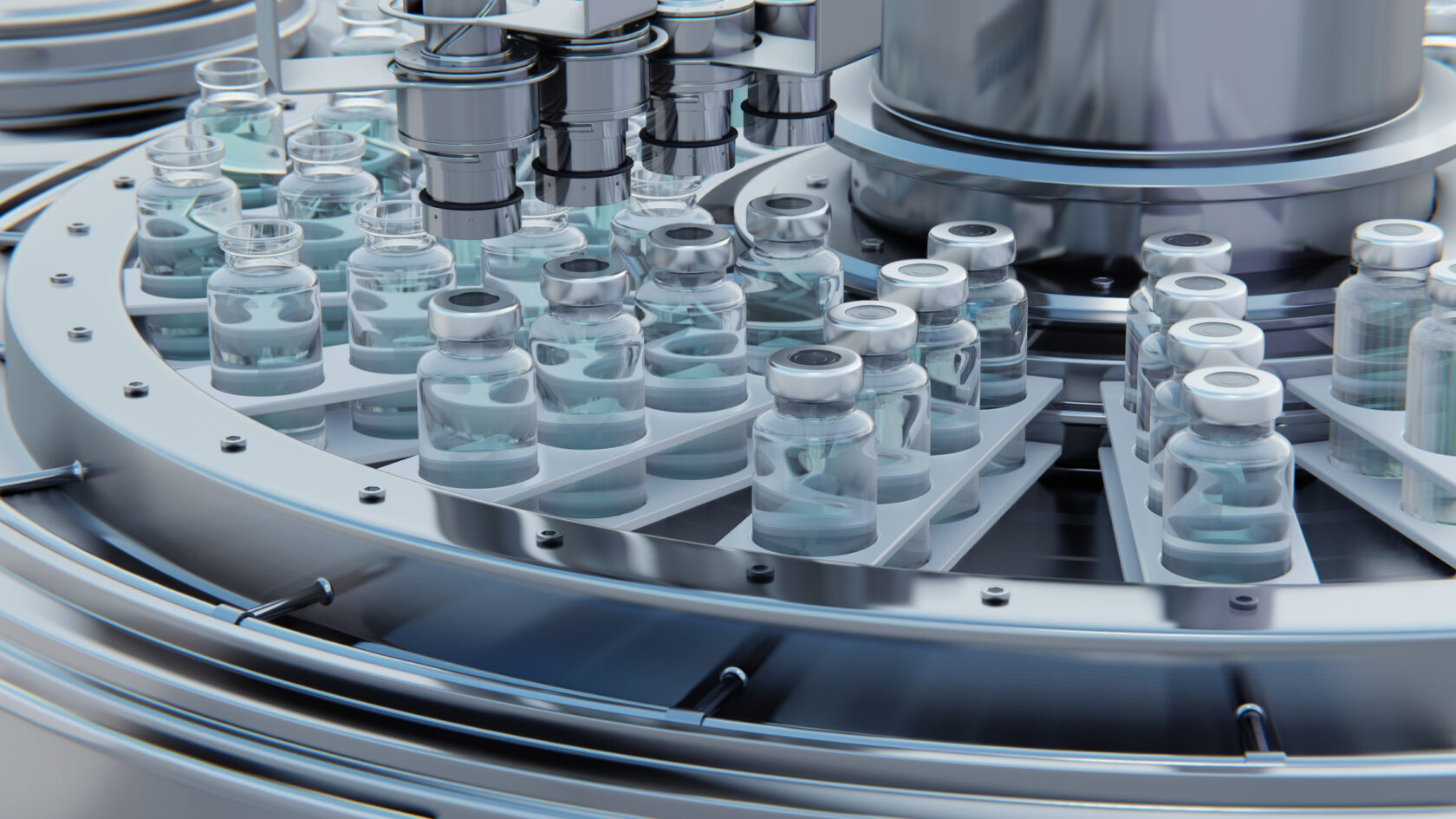News & Insights
Decarbonization of pharmaceutical manufacturing facilities
Pharmaceutical companies are prioritizing carbon footprint reduction as part of their public sustainability goals, but decarbonization presents unique challenges for the industry. This article examines those challenges and offers high-impact strategies to overcome them, helping companies improve efficiency while achieving their sustainability targets.

As the pharmaceutical industry faces mounting pressure to minimize its environmental impact, the challenges are significant. Pharmaceutical companies operate in one of the most energy-intensive sectors, driven by intricate processes, stringent regulations, and the need for precise environmental controls.
The total carbon impact of the biotech and pharmaceutical industry has continued to increase from 3.9% in 2021 to 5% in 2022. This article examines the key challenges to decarbonization and explores the innovative engineering strategies that pharmaceutical leaders are adopting to meet sustainability goals for low-carbon operations.
Industry-specific challenges for decarbonizing pharmaceutical manufacturing facilities
Efforts to reduce carbon emissions in pharmaceutical manufacturing and distribution face several key challenges:
Cold chain and environmental requirements
For many pharmaceuticals, particularly biologics, precise environmental controls are essential. Cold chain logistics require stringent temperature management throughout the supply chain, posing a significant decarbonization challenge. Additionally, manufacturing sites must maintain tight control over indoor conditions—such as temperature, humidity, and pressurization—to protect product integrity. This need for precision drives high energy consumption, particularly in processes involving steam, sterilization, and water purification. Heating, cooling, and dehumidification, often through HVAC systems, are major sources of emissions, with HVAC typically being the largest energy consumer in these facilities.
Generation of ultra-pure water
Water for injection (WFI) is critical for products administered directly to patients, such as injectables and intravenous solutions. Producing and maintaining this high-purity water is energy intensive, especially through distillation and advanced filtration systems. Identifying robust and advanced technologies that allow for capable and reliable operation will be critical in bridging the gap between the need for high-purity water and sustainability.
Limited equipment options and infrastructure
Replacing fuel-burning equipment with sustainable alternatives is rarely straightforward. For instance, steam generation is critical for sterilization, heating, and water purification, but finding a 1:1 replacement for fossil-fuel boilers is challenging. While electric steam boilers and other sustainable options exist, they often require infrastructure upgrades to meet efficiency and output demands. Retrofitting plants for new technologies not only requires significant capital investment but also risks operational disruption, adding further barriers to decarbonization.
Supply chain emissions
A significant portion of pharmaceutical companies’ carbon footprints come from their supply chains, particularly in the sourcing of raw materials, transportation, and packaging. These Scope 3 emissions, which are outside direct operational control, can be difficult to quantify and manage. The production of active pharmaceutical ingredients (APIs), excipients, and packaging materials can involve energy-intensive processes that contribute heavily to overall emissions.
Regulatory constraints
Adopting less carbon-intensive methods is often slowed by stringent validation and testing requirements. Changes to production—whether switching to sustainable energy sources or upgrading equipment—must undergo rigorous regulatory scrutiny to ensure safety and efficacy compliance. While this oversight is essential for maintaining product integrity, it limits flexibility and can delay the adoption of greener technologies. As a result, many companies adopt a cautious “if it’s not broken, don’t fix it” approach, prioritizing regulatory compliance and operational continuity over sustainability innovations.
Despite these challenges, the pharmaceutical industry is increasingly exploring innovative solutions to mitigate its environmental impact while adhering to its strict regulatory and safety obligations.
Key areas of focus for decarbonization in pharmaceutical manufacturing
Despite the industry-specific challenges, the pharmaceutical sector has shown a strong commitment to decarbonization, with ambitious sustainability goals driving innovation. From global industry leaders to emerging startups, companies are seeking actionable solutions to reduce their carbon footprints while maintaining regulatory compliance and operational efficiency.
Here are some of the key areas of focus that offer the greatest potential for impactful, scalable carbon reduction across the industry.
Alternative heating technologies
Non-fossil fuel options such as electric boilers, heat pumps, geothermal systems, biomass, biogas, and hydrogen-based systems can substantially decrease a facility’s dependence on traditional fossil fuel-based heating sources, offering a range of sustainable energy solutions with varying efficiency and emissions profiles. Heat pumps are increasingly being adopted, often with electric heater backups. While ground-source heat pumps are efficient, space constraints can make them impractical for some sites, leading many pharmaceutical companies to explore air-source heat pumps. However, in colder climates, air-source systems may face operational challenges, requiring backup heat sources and resulting in higher upfront costs. In addition, capturing and reusing waste heat from high-temperature processes, such as sterilization and water for injection (WFI) production, can lower overall energy consumption.
Air recirculation
Facilities can achieve substantial savings through air recirculation. Traditionally, systems that use 100% outside air have been favored, but outdoor air is expensive to condition. Advancements in control systems, distribution design, filtration, and dehumidification make it possible to adjust the air turnover rate and avoid excessive air exchange to improve efficiency without compromising environmental control. Even clean rooms can maintain high quality standards with lower air change rates if the design of the system is done correctly.
Control systems
Advanced control systems are essential for optimizing the operation of critical plant infrastructure, including HVAC, chiller plants, and compressed air systems. These systems continuously monitor, adjust, and automate equipment to ensure operations run only when necessary, reducing energy waste. For example, adjusting chiller set points and reducing unnecessary cooling loads can lower energy consumption significantly. Similarly, turning off idle compressors in compressed air systems prevents wasted energy. Control systems also provide valuable operational data, enabling fine tuning and long-term energy performance improvements.
Central plant improvements
Central plant optimization offers substantial decarbonization opportunities by addressing the plant’s largest energy consumers: chiller plants, steam generation systems, and water purification processes. Key areas to focus on include:
- Upgrading equipment: Replacing outdated or inefficient equipment with more energy-efficient alternatives, such as electric boilers or high-efficiency chillers.
- Heat recovery systems: Capturing and reusing waste heat from steam and water purification processes to reduce the need for additional energy input.
- Energy-efficient water treatment: Optimizing the generation of ultra-pure water (including water for injection) by improving water treatment technologies and reducing energy-intensive processes like distillation.
Reducing fuel-burning equipment
Replacing traditional gas-fired boilers with electric or hybrid alternatives—often called electrification—requires an upfront capital investment with a long-term, dollar-for-dollar ROI. The emission reduction benefits, however, are immediate, making this shift an essential move in the transition to sustainable manufacturing. Fleets for product distribution are another prime target for electrification and can significantly lower transportation-related emissions.
On-site renewable energy generation
Installing onsite renewable power production through solar panels, wind turbines, or geothermal systems can directly power manufacturing operations. Alternately, power purchase agreements (PPAs) to source renewable energy from external providers can reduce carbon emissions tied to facility electricity use.
Practical insights for achieving and expanding decarbonization goals
Whether you are just starting your sustainability journey or refining its efforts, meeting corporate sustainability targets can feel like a daunting task. These practical insights can guide you toward sustainable progress:
1. You can’t improve what you don’t measure
The first step in any decarbonization effort is to establish a baseline for current carbon emissions. Accurate measurement of energy consumption, emissions, and waste streams is essential for marking progress. Implementing robust data tracking and monitoring systems and utilizing sensors and meters provides the insights necessary to make informed decisions and identify opportunities for carbon reduction.
2. Let corporate sustainability goals set the trajectory, then focus on incremental improvement
Corporate sustainability goals are often driven by investor expectations, and timelines can be ambitious. The most successful strategies, however, focus on incremental progress that leads to tangible and measurable achievements. Breaking down ambitious targets into smaller, achievable steps allows companies to steadily build momentum, monitor progress, and adapt as needed. Celebrating each win can help drive continuous improvement and long-term success.
3. Talk with others who are on the journey
Learning from others who have already embarked on the decarbonization journey is invaluable. Industry associations, such as the International Society for Pharmaceutical Engineering (ISPE), offer a wealth of resources and networking opportunities. Engaging with peers and thought leaders helps organizations stay informed on emerging best practices, technologies, and regulatory changes while also offering insights into which strategies are most effective.
4. Connect with a consulting engineering team specializing in decarbonization
Partnering with experts can fast-track your sustainability goals. Salas O’Brien specializes in decarbonization strategies tailored to pharmaceutical manufacturing and distribution facilities. We bring deep expertise in energy optimization, sustainable technology integration, and regulatory compliance, helping you navigate the complexities of decarbonization while maximizing efficiency and impact.
Whether you’re just beginning or looking to enhance existing initiatives, the path to decarbonization is one that benefits both your business and the planet. Reach out to one of our contributors below.
For media inquiries on this article, reach out to Stacy Lake, Director of Corporate Communications.

Allen Koester, PE, PMP
Allen Koester is a professional engineer and certified project manager with 35 years of experience, including 31 in FDA-regulated environments. He has led large capital projects exceeding $150M from concept to implementation and has broad knowledge of major engineering and construction installations. He retired from AstraZeneca in 2016 and now serves as a Senior Vice President at Salas O’Brien. Contact him at [email protected].

Will Knapp
Will Knapp is an accomplished professional with over 20 years of experience in pharmaceutical manufacturing, quality, validation, and compliance. His expertise spans biopharmaceuticals, aseptic processing, oral solid dosage (OSD), and medical devices. Will’s technical knowledge extends to the intersection of digital transformation and sustainability, enabling pharmaceutical manufacturers to achieve meaningful and effective outcomes. He holds a Bachelor of Science in Management from Indiana Wesleyan University and currently serves as a Director of Pharmaceutical Projects at Salas O’Brien. Contact him at [email protected].

Anderson Kong, P.Eng, LEED AP
Anderson Kong has been serving clients in the pharmaceutical industry for more than 20 years. With an extensive portfolio from global firms to startups, Anderson has gained invaluable insights into their unique perspectives on various engineering challenges and the intricacies of project budgeting. Anderson serves as a Principal at Salas O’Brien. Contact him at [email protected].


